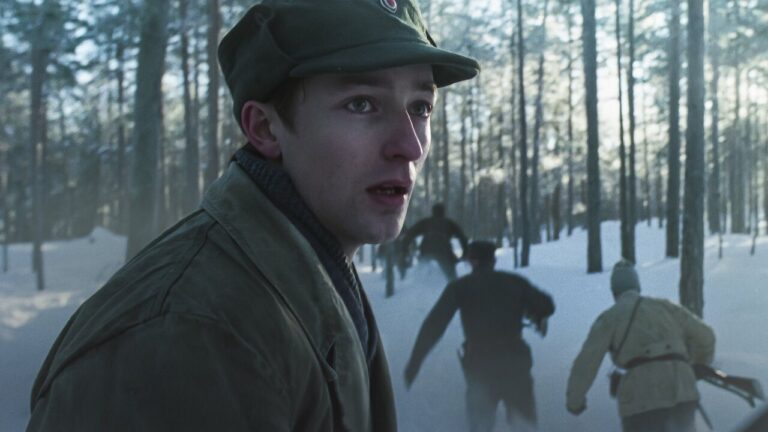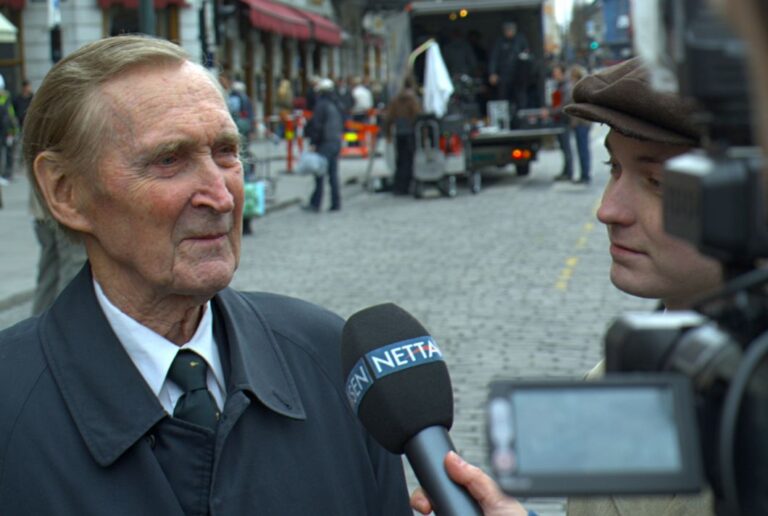Since its global release on January 1, 2025, ‘Number 24' has captivated audiences across continents, quickly becoming one of Netflix’s most-watched non-English films.
Its gripping portrayal of courage, sacrifice, and resistance has struck a chord with viewers, catapulting this Norwegian-language war drama into the global spotlight.

The film tells the true story of Gunnar Sønsteby, Norway’s most decorated war hero, whose undercover efforts against the Nazi occupation changed the course of the resistance movement.
More than just a history lesson, ‘Number 24‘ delivers an emotionally charged narrative that resonates in today's world of shifting geopolitical tensions and renewed discussions about freedom and democracy.
TV Resources in Norway 🇳🇴
TV Providers in Norway. Compare the offers from the various TV suppliers in Norway with this free service from our friends at Tjenestetorget.
Unlock more content. With a VPN you can securely access your favourite shows at home or on the road. Check out Pure VPN for a great deal.
The Real-Life Hero: Gunnar Sønsteby
Gunnar Fridtjof Thurmann Sønsteby, born in Rjukan in 1918, emerged as a central figure in Norway's resistance during World War II.
Operating under the codename ‘Number 24,' he led the Oslo Gang in numerous sabotage missions targeting Nazi infrastructure and supply chains. His intelligence, courage, and ability to evade capture made him a legend.
His exceptional bravery earned him the War Cross with three swords, making him the most highly decorated citizen in Norwegian history.
Sønsteby's story is well-known within Norway, but Number 24 introduces his remarkable life to a global audience, providing a fresh and emotionally powerful lens on the events of the occupation.
Speaking personally, I’ve learned so much more about World War II since moving to Norway, particularly from hearing familiar stories told from a new and personal perspective.

Films like this play a huge role in giving us a more rounded view of historical events, reminding us that history is not monolithic. It is made up of countless voices and experiences, many of which are only just beginning to be heard internationally.
A Dual Narrative: Past and Present
Directed by John Andreas Andersen, ‘Number 24' employs a dual narrative structure.
The main storyline follows the young Sønsteby during the height of the war, while a parallel plotline features an elderly Sønsteby reflecting on his past as he speaks to a group of Norwegian schoolchildren.
Interested in war history? Check out our video about Narvik's war story over on YouTube.
This clever storytelling technique helps to contextualise the historical events while inviting viewers to consider how the past shapes national identity and memory.
The framing device of the classroom is particularly moving, reinforcing the idea that history must be remembered and passed on. It also allows the film to engage directly with modern audiences, drawing parallels between past and present struggles for freedom and justice.
A Cast Worth Watching
The film features a talented ensemble cast that brings the true story to life with emotional depth and authenticity:
Sjur Vatne Brean stars as the young Gunnar Sønsteby. Known for his work in Rådebank, Brean captures the character’s intelligence, moral conflict, and quiet strength.
His understated performance grounds the film, giving audiences an emotionally accessible window into Sønsteby’s transformation from student to saboteur.
Erik Hivju, the older brother of Kristofer Hivju (Game of Thrones), plays the elder Sønsteby. With a quiet but commanding presence, Hivju delivers reflective monologues that deepen the film’s resonance, especially in scenes where past and present collide.
Lisa Loven Kongsli plays Gudrun Collett, a fictionalised composite of several women in the resistance. Through her portrayal, the film highlights the often-overlooked but critical role of women in wartime Norway—managing logistics, gathering intelligence, and risking their lives in silence.
Kongsli, known for Force Majeure and Wonder Woman, brings both warmth and grit to the role.
August Wittgenstein portrays Siegfried Fehmer, the feared Gestapo officer who pursued the Oslo Gang. Wittgenstein plays the antagonist with chilling precision, yet avoids caricature, adding nuance to the film’s exploration of duty, power, and ideology.
Among the supporting cast, Ingrid Giæver deserves special mention for her role as Ingrid, a resistance courier whose brief but impactful scenes offer a glimpse into the personal costs of rebellion. Jakob Oftebro, appearing in a cameo as a captured resistance fighter, also leaves a mark with a quietly devastating performance that reinforces the stakes of the Oslo Gang’s mission.
Together, the ensemble enhances the story's emotional breadth, reminding viewers that while Sønsteby’s story is extraordinary, he was far from alone in his courage.
A Visual and Emotional Triumph
Shot on 35mm film, Number 24 stands out for its commitment to visual authenticity. The muted tones and period-accurate production design pull viewers into the era.
Cinematographer John Christian Rosenlund’s camera work is striking yet unobtrusive, allowing the emotional performances to take centre stage.
The score, composed by Gaute Storaas, blends traditional orchestration with subtle electronic elements, reflecting the tension and uncertainty of wartime life.
Critical and Audience Acclaim
‘Number 24' received a 100% rating on Rotten Tomatoes shortly after release, and quickly climbed to the top of Netflix’s global non-English charts, surpassing 8.8 million views in its first week.
Critics have praised the film’s emotional power, nuanced writing, and the decision to foreground a lesser-known but important WWII story.
Audiences have responded positively to the film’s fresh perspective on the war genre, noting that the focus on intelligence and resistance—rather than large-scale battles—offers a more intimate and thought-provoking experience.
Why It Matters Today
The story of ‘Number 24' resonates far beyond Norway’s borders. At a time when democracy and truth are under threat in many parts of the world, Sønsteby’s courage and sense of duty offer timely inspiration.
Producer Espen Horn has noted that the film’s themes of standing up to oppression and the moral ambiguity of war have struck a chord with international audiences. By emphasising personal sacrifice and civic duty, the film encourages viewers to reflect on their own values and responsibilities.
For anyone interested in history, resistance movements, or simply powerful human drama, Number 24 is an unmissable film that deserves all the acclaim it’s receiving.


Hi David
Erik Hivju is Kristofer’s father.
There are several norsk films available in the UK, mainly about the war. I have found them very informative, especially as my norsk mother was the subject of German occupation.
Sorry I won’t see you on the Fred Olsen Northern Lights cruise this time. I will be shadowing you on the Ambassador Ambience cruise at the same time and similar route. If you like I can let you know what Ambience is like.
Thanks for your useful information. I have used it a lot and I forwarded your site to a friend who had a great time in Oslo as a result. Better than the tourist information.